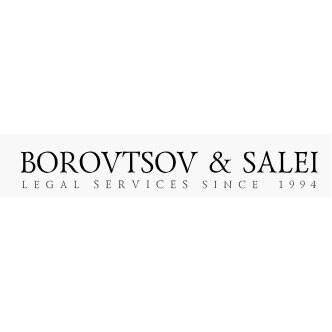Best Landlord & Tenant Lawyers in Belarus'
Share your needs with us, get contacted by law firms.
Free. Takes 2 min.
Free Guide to Hiring a Real Estate Lawyer
List of the best lawyers in Belarus', Belarus
About Landlord & Tenant Law in Belarus', Belarus
Landlord and tenant law in Belarus is governed by a set of regulations and statutes that aim to balance the rights and responsibilities of both parties involved in rental agreements. While the country does not have a separate codified residential tenancies act, provisions related to tenancy are part of civil and housing codes. These laws cover various aspects, such as lease agreements, rent control, tenant rights, eviction procedures, and obligations of landlords.
Why You May Need a Lawyer
Legal assistance may be required in a variety of situations, including:
- Lease Agreements: Drafting or reviewing lease contracts to ensure they comply with Belarusian law and protect your interests.
- Rent Disputes: Navigating disagreements regarding rent increases, unpaid rent, or rent payments.
- Evictions: Understanding legal eviction procedures and ensuring they are lawfully conducted.
- Property Damage: Resolving issues related to property maintenance and repair responsibilities.
- Security Deposits: Handling disputes over deposit returns.
- Discrimination: Addressing any unlawful discrimination faced during tenancy.
Local Laws Overview
Several key aspects of Belarusian law are particularly pertinent to landlords and tenants:
- Lease Agreements: Leases can be oral or written but written contracts are recommended. They usually include the duration, rent amount, and both parties' obligations.
- Rental Increases: Rent adjustments are typically governed by the terms of the lease. Tenants should be notified of any increases in advance.
- Tenant’s Rights: Tenants are entitled to quiet enjoyment of the property and proper maintenance and repairs.
- Eviction Process: For evictions, a legal process must be followed, with court involvement required to enforce an eviction order.
- Repairs and Maintenance: Landlords are usually responsible for major repairs whereas minor issues may fall to tenants, depending on the lease terms.
Frequently Asked Questions
1. Can a landlord enter my rental property without notice?
No, landlords must provide proper notice unless it's an emergency situation.
2. How much notice must a tenant give before moving out?
This depends on the lease terms, but typically a month's notice is required.
3. Can a landlord increase rent during a fixed-term lease?
Generally, rent increases are not permitted during a fixed-term lease unless specifically allowed in the lease agreement.
4. What should I do if my landlord is not making necessary repairs?
First, notify your landlord in writing. If the issue persists, you may need to seek legal advice or contact local housing authorities.
5. What happens to my security deposit when I move out?
The deposit should be returned minus any legitimate deductions for damages beyond normal wear and tear.
6. Can a tenant refuse a rent increase?
Tenants may negotiate or contest an increase if it is deemed unreasonable or if proper notice wasn't given.
7. Are verbal lease agreements valid in Belarus?
While verbal agreements can be valid, written agreements are recommended for legal clarity and protection.
8. How can I file a complaint against my landlord?
Complaints can be filed with local housing authorities or through the court system.
9. Is subletting allowed?
Subletting is usually allowed if the landlord gives written consent, which should be stipulated in the lease agreement.
10. What legal protections exist against eviction during winter?
Certain protections may exist, particularly involving families with young children or in cases where landlords are required to offer alternative accommodations. However, it is advisable to seek legal advice for specific scenarios.
Additional Resources
For further assistance, the following organizations and resources may be helpful:
- Local Housing Authorities: Provide information and resolve disputes.
- Legal Clinics: Offer free or low-cost legal help and advice.
- Belarusian Lawyers Association: Can provide referrals to qualified legal professionals.
- Court of Law: For filing cases related to landlord and tenant disputes.
Next Steps
If you require legal assistance regarding landlord and tenant matters in Belarus, it is recommended to:
- Document Everything: Keep records of all communications and agreements with your landlord or tenant.
- Seek Legal Advice: Contact a qualified lawyer specializing in landlord and tenant law to discuss your case.
- Contact Local Housing Authorities: They may mediate disputes and provide guidance.
Lawzana helps you find the best lawyers and law firms in Belarus' through a curated and pre-screened list of qualified legal professionals. Our platform offers rankings and detailed profiles of attorneys and law firms, allowing you to compare based on practice areas, including Landlord & Tenant, experience, and client feedback.
Each profile includes a description of the firm's areas of practice, client reviews, team members and partners, year of establishment, spoken languages, office locations, contact information, social media presence, and any published articles or resources. Most firms on our platform speak English and are experienced in both local and international legal matters.
Get a quote from top-rated law firms in Belarus', Belarus — quickly, securely, and without unnecessary hassle.
Disclaimer:
The information provided on this page is for general informational purposes only and does not constitute legal advice. While we strive to ensure the accuracy and relevance of the content, legal information may change over time, and interpretations of the law can vary. You should always consult with a qualified legal professional for advice specific to your situation.
We disclaim all liability for actions taken or not taken based on the content of this page. If you believe any information is incorrect or outdated, please contact us, and we will review and update it where appropriate.








